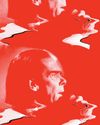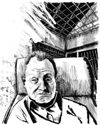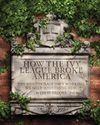The Rise Of Capitalist reality TV

VIAGRA WAS SUCH a fantastic name that Pfizer trademarked it long before the company had a drug to go with it, and perhaps the same is true of Steve Harvey’s Funderdome, a title so capacious that it might contain almost any kind of hijinks. In fact, the ABC show, which completed its first season this fall, has a specific and narrow focus: Aspiring inventors pitch their products to the host and his audience in hopes of winning funding for further development. The premise is hardly daisy-fresh—Shark Tank, which made the format famous, is now in its ninth season—but we have never looked to the ubiquitous host-comedian Steve Harvey for the shock of the new. His career secret is to heave his enormous personality against time-honored formulas at Mach speed, and see which ones are strong enough to survive the hit. That he has chosen to fill his Funderdome with the risks and rewards of entrepreneurship tells us that the golden age of capitalist reality television is truly upon us.
The genre began with our president, of course, who realized years ago that TV contests based on people’s ability to sing, dance, or get along with a houseful of losers on the CBS lot were small-time. The Apprentice, which debuted in 2004, wasn’t about winning on the dance floor; it was about winning where it counts: in business. The show, like so much of the Trump enterprise, was based largely on humiliation. In the first episode, female contestants, each of them a legitimate businesswoman in her own right, won the challenge of running a lemonade stand in Manhattan by offering to kiss customers. Their prize was a visit to Trump’s apartment, where they met Melania and told her how lucky she was. The premise of the show was not that it gave the victor a chance at becoming an independent businessperson, but rather that it made him or her a subaltern to the star.
This story is from the December 2017 edition of The Atlantic.
Start your 7-day Magzter GOLD free trial to access thousands of curated premium stories, and 9,000+ magazines and newspapers.
Already a subscriber ? Sign In
This story is from the December 2017 edition of The Atlantic.
Start your 7-day Magzter GOLD free trial to access thousands of curated premium stories, and 9,000+ magazines and newspapers.
Already a subscriber? Sign In

The Dark Origins of Impressionism
How the violence and deprivation of war inspired light-filled masterpieces

The Magic Mountain Saved My Life
When I was young and adrift, Thomas Manns novel gave me a sense of purpose. Today, its vision is startlingly relevant.

The Weirdest Hit in History
How Handel's Messiah became Western music's first classic

Culture Critics
Nick Cave Wants to Be Good \"I was just a nasty little guy.\"

ONE FOR THE ROAD
What I ate growing up with the Grateful Dead

Teaching Lucy
She was a superstar of American education. Then she was blamed for the country's literacy crisis. Can Lucy Calkins reclaim her good name?

A BOXER ON DEATH ROW
Iwao Hakamada spent an unprecedented five decades awaiting execution. Each day he woke up unsure whether it would be his last.

HOW THE IVY LEAGUE BROKE AMERICA
THE MERITOCRACY ISN'T WORKING. WE NEED SOMETHING NEW.

Against Type
How Jimmy O Yang became a main character

DISPATCHES
HOW TO BUILD A PALESTINIAN STATE There's still a way.